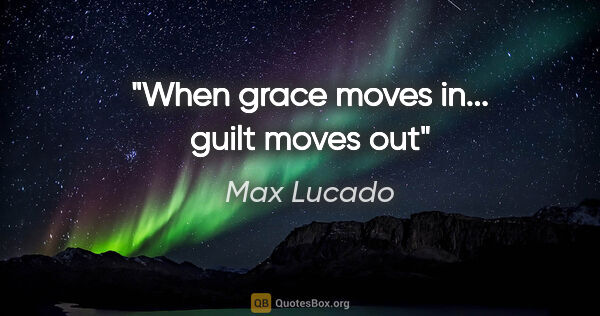Guilt Quotes (page 7)


The nearer Christ comes to a heart, the more it becomes conscious of its guilt; it will then either ask for his mercy and find peace, or else it will turn against Him because it is not yet ready to give up its sinfulness. Thus He will separate the good from the bad, the wheat from the chaff. Man's reaction to this Divine Presence will be the test: either it will call out all the opposition of egotistic natures, or else galvanize them into a regeneration and a resurrection.
Fulton J. Sheen

The question of why evil exists is not a theological question, for it assumes that it is possible to go behind the existence forced upon us as sinners. If we could answer it then we would not be sinners. We could make something else responsible...The theological question does not arise about the origin of evil but about the real overcoming of evil on the Cross; it ask for the forgiveness of guilt, for the reconciliation of the fallen world
Dietrich Bonhoeffer
Hyoi, it is through me that this has happened. It is the other hmana who have hit you, the bent two that brought me to Malacandra. We are only half hnau--Hyoi..." His speech died away into the inarticulate. He did not know the words for "forgive," or "shame," or "fault," hardly the word for "sorry." He could only stare into Hyoi's distorted face in speechless guilt. But the hross seemed to understand. It was trying to say something, and Ransom laid his ear close to the working mouth. ...
C. S. Lewis
Apologizing to me again, thought Miles miserably. For me. He keeps telling me I'm all right—and then apologizing. Inconsistent, Father. He shuffled back and forth across the room again, and his pain burst into speech. He flung his words against the deaf door, "I'll make you take back that apology! I am all right, damn it! I'll make you see it. I'll stuff you so full of pride in me there'll be no room left for your precious guilt! I swear by my word as Vorkosigan. I swear it, Father," his...
Lois McMaster Bujold
I think about death all the time, but only in a romantic, self-serving way, beginning, most often, with my tragic illness and ending with my funeral. I see my brother squatting beside my grave, so racked by guilt that he’s unable to stand. “If only I’d paid him back that twenty-five thousand dollars I borrowed,” he says. I see Hugh, drying his eyes on the sleeve of his suit jacket, then crying even harder when he remembers I bought it for him.
David Sedaris


